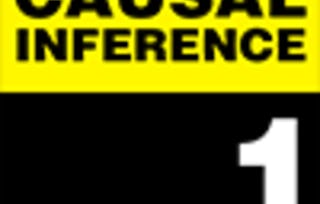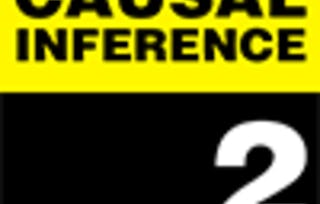We have all heard the phrase “correlation does not equal causation.” What, then, does equal causation? This course aims to answer that question and more!

A Crash Course in Causality: Inferring Causal Effects from Observational Data
Seize the savings! Get 40% off 3 months of Coursera Plus and full access to thousands of courses.

A Crash Course in Causality: Inferring Causal Effects from Observational Data

Instructor: Jason A. Roy, Ph.D.
46,441 already enrolled
Included with
569 reviews
Skills you'll gain
Tools you'll learn
Details to know

Add to your LinkedIn profile
16 assignments
See how employees at top companies are mastering in-demand skills

There are 5 modules in this course
Instructor

Offered by
Explore more from Probability and Statistics
 Status: Preview
Status: PreviewColumbia University
 Status: Free Trial
Status: Free TrialUniversity of Minnesota
 Status: Preview
Status: PreviewColumbia University
Why people choose Coursera for their career

Felipe M.

Jennifer J.

Larry W.

Chaitanya A.
Learner reviews
- 5 stars
77.01%
- 4 stars
19.12%
- 3 stars
1.92%
- 2 stars
0.70%
- 1 star
1.22%
Showing 3 of 569
Reviewed on Mar 11, 2021
Excellent video lectures. Challenging end of module quizzes. I found more challenging doing the practical exercises because I had no experience with R.
Reviewed on Nov 13, 2024
This is a great course to me! This course really helps me have a better understanding of what constitutes causal effects. I really appreciate him for this course!
Reviewed on Sep 11, 2021
Great introduction on the causal analysis.The instructor did a great job on explaining the topic in a logical and rigorous way. R codes are very relevant and helpful to digest the material as well.

Open new doors with Coursera Plus
Unlimited access to 10,000+ world-class courses, hands-on projects, and job-ready certificate programs - all included in your subscription
Advance your career with an online degree
Earn a degree from world-class universities - 100% online
Join over 3,400 global companies that choose Coursera for Business
Upskill your employees to excel in the digital economy


